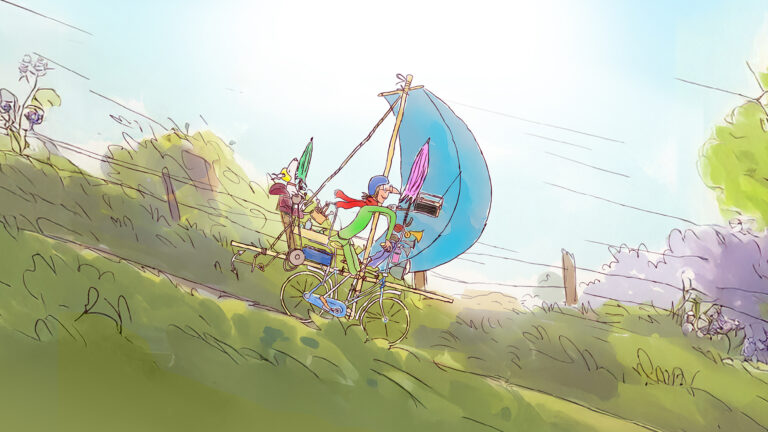Katy Galloway Productions brings the London première of Smoke by Kim Davies, to Southwark Playhouse.
This gripping modern adaptation of Miss Julie is set in a pre-‘Me Too’ New York at a BDSM party. It asks audiences to question our pre-conceived conceptions around BDSM communities. With a series of Q&As involving sex positive activists, and BDSM advocates, this production aims to tackle notable prejudices such as ‘kink shaming’.
To continue the Q&A theme of the play, the News met up with the two leads, Meaghan Martin as Julie, and Oli Higginson as John, to pose these questions, writes Michael Holland.
You both are very familiar with your characters – how have they developed over the years of working on SMOKE?
Meaghan: The characters have developed a lot since we first did the Research & Development workshop in March 2021. I feel fortunate to have had time to live with Julie, both directly and indirectly during this time. I feel that she has become more fleshed out and alive and it’s given me the space to accept some of her nuances and flaws in a way that I may not have been able to if the process had been faster.
Oli: Both the characters in SMOKE are incredibly nuanced, complicated people — often contradictory to the point of hypocrisy. They are mercurial and chameleon-like — just like real human beings are. So their slipperiness means that the more time you can spend with them the better, of course. John is a character who has lived in my psyche — for better and for worse! — for almost two years now. But then, when we began rehearsals this year, re-visiting the character in 2023 felt quite different. And I suppose that’s the mark of good writing, it’s the same words, the same story, but every day it feels a little different.
How close will it be to Miss Julie?
Meaghan: I’d say it’s as close to Miss Julie as you want it to be. If you’re familiar with Miss Julie you will notice a lot of parallels. If you’re not familiar you won’t be lost. I have really relied on the source text as my way into the character so I see so much of the original in Smoke, but I think what Kim Davies did so well is striking the right balance between using the source text for inspiration but also telling a wonderfully new story.
Oli: Tough to say! It has strong reverberations of the Miss Julie dynamic running through it, but ultimately Kim has sort of melted the Miss Julie material down down and reformed it, stretched it around, pulled it about into something quite different and contemporary that propels the conversation around gender, power, and consent into new territory. One could say it isn’t a Miss Julie adaptation at all, but simply a brilliant modern play in its own right.

What attracted you to this play, the script or the subject matter?
Meaghan: For me it was the storytelling. I found it to be a real ‘page turner’ when I first read it. I wanted to know what was going to happen between these two people. At the time I wasn’t familiar with Miss Julie so I was very surprised by the ending – not that it exactly mirrors Miss Julie because it definitely doesn’t.
Oli: I first read the play in 2020 right around the same time Michaela Coel’s fantastic TV series I May Destroy You came out. Both Coel’s I May Destroy You and Davies’ SMOKE dive into the grey areas of sexual relationships in the 21st century. The themes of both really stuck with me. I was struck by, despite so much progress, how much further we really have to go in making sense of sex, gender dynamics, and consent. Like so many of my peers I’m passionate about how we can keep growing into a more evolved, safer, fairer society. And I feel like this play begins a complex, nuanced, and difficult but essential conversation that might help realise that goal. So, yes, I love the writing, I love that it’s a two-hander, I love that it’s 70 minutes of one real-time conversation in a kitchen. It’s that simple. But I feel it’s an important play for our times, too.
How do you think it will be accepted post-‘Me Too’?
Meaghan: I think it’s a play that was ahead of its time when it premiered in 2013. I think audiences didn’t have the acceptance of the nuances of consent that we have now so I believe that it’s actually better suited to a 2023 audience.
Oli: Hmmm I think ‘accepted’ is an interesting term. In the case of SMOKE, I don’t think it’s telling you to ‘accept’ anything. Maybe it’s inviting you to think for yourself. It’s not a sort of science lesson. Relationships aren’t maths, they aren’t one plus one equals two. They’re messy and confusing, and often difficult to make sense of. The play is set in 2012, so it’s pre-‘Me Too’. In some sense it’s a period piece. But I think the question remains as to how much the world has really changed post-‘Me Too’. Potentially it is wishful thinking to assume we now live in this enlightened age of equality. At the end of the day I think that SMOKE will be received in as many different ways as there are audience members with their own lived experience. It’s undoubtedly a very relatable story, how it relates to you will depend from person to person.
Why do you think it has taken so long to come to London?
Meaghan: The show was on in Edinburgh in 2019 which was only 6 years after it premiered in New York City. I’m not sure why it only is reaching London in 2023, but I would imagine the pandemic plays a big role in that. However, as I mentioned before, I think it’s more relevant than ever as it’s very much in a similar vein to some of the most popular television shows of the time such as White Lotus or Succession so perhaps the delay to a London premiere was for the better!
Oli: I’m not sure really. In a way the play was ahead of its time and maybe is coming into its own now that we’re in a 2023 headspace. I know Kim was under a lot pressure when first writing the play in 2012 to make the characters less morally ambiguous — so that there could be a clearer hero and villain dynamic in the piece to fit in with the simplified narratives we tell ourselves about what life is like. I applaud her for sticking to her truth and writing the play that spoke to her lived experience. And I think in recent months — especially on TV — audiences have been increasingly drawn to flawed, complex characters who don’t fit in to tidy hero-and-villain stereotypes. So maybe SMOKE is part of a movement of some kind, who knows. There have been some brilliant past productions of SMOKE, and all of us working on it currently are really excited the play is finally making its London Premiere in a production that feels very fresh, daring, and powerfully relevant.
Southwark Playhouse, 77-85 Newington Causeway, London SE1 6BD from 1st – 25th February. Admission: £22, £16, £17.50 (cons)
Box Office: 020 7407 0234 (Mon-Sat, 10am-9pm)






